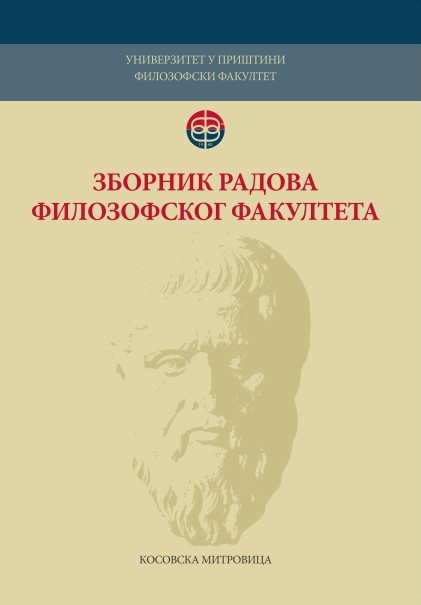University Students’ Centre for Psychological Counselling: Empirical Research and Potential Importance for the Improvement of the Quality of Student Life
University Students’ Centre for Psychological Counselling: Empirical Research and Potential Importance for the Improvement of the Quality of Student Life
Author(s): Dušan Todorović, Dušan J. Ranđelović, Darinka IlićSubject(s): Social Sciences, Psychology
Published by: Филозофски факултет, Универзитет у Приштини
Keywords: student centre for psychological counselling; prediction of problems within the student population; student mental health.
Summary/Abstract: Counselling psychology addresses the emotional, social, work, school, and physical health concerns people may have at different stages in their lives, focusing on typical life stresses and more severe issues with which people may struggle as individuals and as a part of families, groups, and organizations. The increasing rate of psychological problems and their consequences indicate that student centres that provide psychological assistance have to exist. The pilot project “Psychological counselling centre for students” at the University of Niš is one of the largest and longest running projects of this type among the universities in Serbia. The basic research problem is an attempt to predict the frequency of occurrence of student-related problems regarding: learning and intellectual functioning, emotional relationships, communication, and social relations based on self – concept, quality of family communication and emotional intelligence. The sample consisted of 400 students from University of Niš. A self-concept scale (Bezinović, 1988) was used to measure the self-concepts of adolescents, while (primary) family satisfaction was measured using the Faces IV questionnaire (Olson & Gorrall, 2006). To estimate emotional intelligence, the Emotional Competence Questionnaire was used (Takšić et al., 2006). Almost all the models were obtained via the hierarchical regression analysis, and proved to be statistically significant, so that the percentage of the explained variance ranges from 7.9% when it comes to problems in the sphere of emotional relationships, to 24,8% in the sphere of communication and social relations. This means that the models best functioned precisely when it came to explaining the problem of communication and social functioning among students, even though the percentage of the explained variance of 10,9% in the case of the problem of studying and intellectual functioning is not negligible. The study of potential and significant factors which could have an impact, whether positive or negative, on the mental health of the student population is and should be an imperative for the scientific and professional community.
Journal: Зборник радова Филозофског факултета у Приштини
- Issue Year: 51/2021
- Issue No: 4
- Page Range: 409-429
- Page Count: 21
- Language: English

